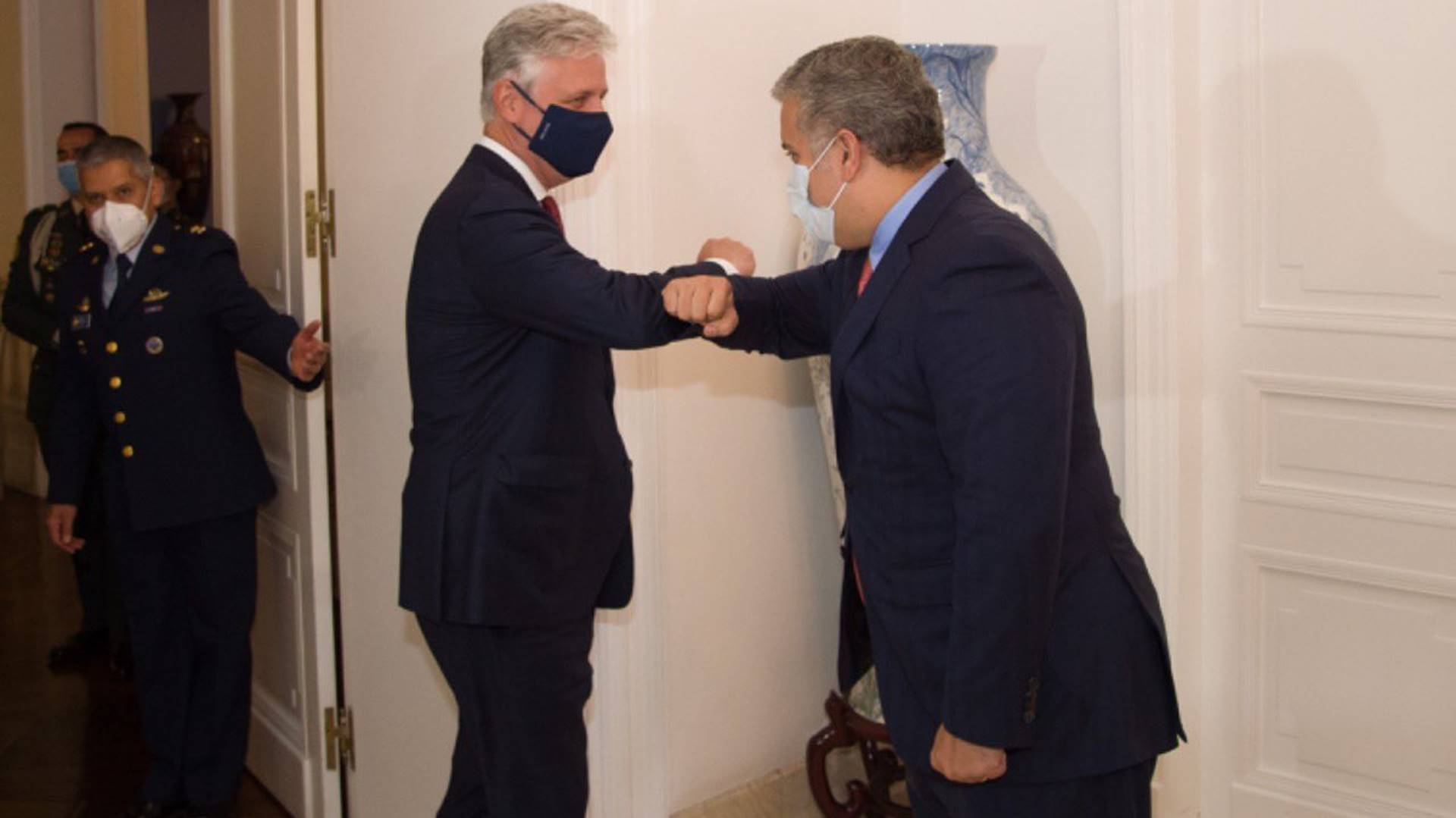The United States and Colombia announced a new plan to combat drug trafficking by helping the economic development of poor areas of the Latin American country which would allow the population to make money legally and turn its back to organized crime.
Called “Colombia Growth,” the bilateral initiative pledged to “mobilize strategic investment to the neediest areas of our country,” explained the Colombian President Ivan Duque during this week’s visit of American National Security Conseiller Robert C. O’Brien to Bogota.
“The idea is to reach those municipalities where we have needs for tertiary roads, water and sanitation, electrification, education, and how to also generate legal alternative income for many of those families that have been threatened and that have been pressured many times by illegal armed groups,” Duque added.
Mexico corruption leak: New Video raises questions over the president
“By supporting Colombia’s efforts to guarantee security in the country and combat criminal organizations, some of which are transnational, we help create the conditions for economic growth in Colombia that, in turn, will benefit the people of the United States,” Conseiller O’Brien said.
Neither government mentioned any amounts but said that more details would come in the next few weeks. The U.S. also announced Covid and alimentary aid.
The strategy to invest in development to combat drug trafficking in Colombia is not new, an expert told OCCRP on Wednesday.
“It’s consistent with what development agencies have done in Colombia during the past 20 years,” Paul Angelo from the Council on Foreign Relations said.
Nevertheless, Colombia’s president described the plan as a “new chapter” of Plan Colombia – a U.S. initiative conceived in 1999 by former Colombian President Andres Pastrana and U.S. President Bill Clinton.
“One of the key elements of Plan Colombia for the United States was to finance the spraying of herbicide to kill coca plants (from which cocaine is derived),” explained Angelo.
“It was largely successful. It contributed to a significant decline in violence and coca cultivation until it was discovered that the chemical used caused cancer,” he said.
Since the sprayings stopped, and despite Duque aggressive manual eradication program, the coca cultivation, and thus the violence, have exploded again.
The United Nations have recently expressed deep concerns about the rise of violence in Colombia. So far this year, the Office of the UN High Commissioner for Human Rights has documented 33 massacres and at least 45 homicides of Human Rights defenders.
“The assassination of land rights activists by armed groups especially increased. A lot of spaces in Colombia remain very insecure,” Angelo said.
Colombia is also the main point of transit for Venezuelan drugs, which Angelo describes as “the financing line of Maduro’s regime.”
The expert fears that this could make it hard to convince the American private sector to invest into the Colombian countryside, which could drive the U.S. to reduce the aid.
OCCRP / Balkantimes.press
Napomena o autorskim pravima: Dozvoljeno preuzimanje sadržaja isključivo uz navođenje linka prema stranici našeg portala sa koje je sadržaj preuzet. Stavovi izraženi u ovom tekstu autorovi su i ne odražavaju nužno uredničku politiku The Balkantimes Press.
Copyright Notice: It is allowed to download the content only by providing a link to the page of our portal from which the content was downloaded. The views expressed in this text are those of the authors and do not necessarily reflect the editorial policies of The Balkantimes Press.

